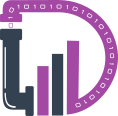What is IoT?
IoT is a network of physical devices, vehicles, home appliances, and other items embedded with sensors, software, and connectivity that enable them to exchange data with other devices and systems over the internet. IoT devices can be used to monitor and control everything from home appliances to industrial equipment, enabling businesses and consumers to optimize their operations and reduce costs.
Why is IoT Important?
IoT is important because it enables businesses and consumers to collect and analyze data from a wide range of sources, allowing them to optimize their operations, reduce costs, and improve efficiency. For example, in the healthcare industry, IoT devices can be used to monitor patient health remotely, allowing doctors and nurses to make more informed decisions about treatment plans. In the manufacturing industry, IoT devices can be used to monitor equipment and predict when maintenance is needed, reducing downtime and maintenance costs.


